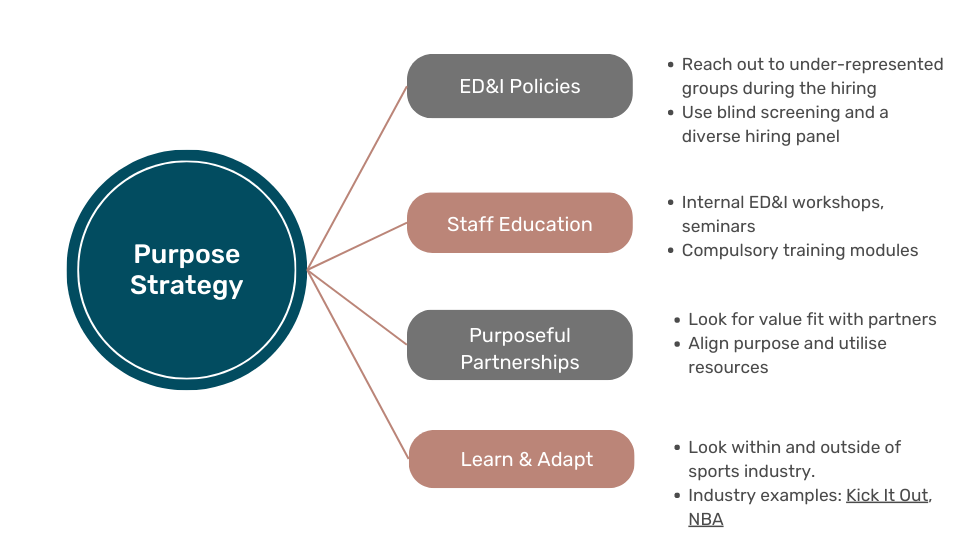Game Changers: Unleashing the Transformative Power of Sport for a Better World

Sport and its power in changing individual lives are quite clear. But it plays a major role in the wider society by bringing people together into a safer and more inclusive environment. Addressing social issues and trying to be the standard bearer has become second nature for the industry. From supporting local community causes to fighting for equality or climate change, clubs are taking measures to tackle these causes.
Social Issues
While the world of sports has witnessed its fair share of discriminatory behaviour, it has served as a platform for athletes and brands to confront these issues with bravery. From the iconic "Black Power" salute during the 1968 Olympics to Nelson Mandela's use of the Rugby World Cup to unite his nation after apartheid and the global act of "taking the knee" in the fight against racism, sports have acted as a catalyst for driving positive change.
Another significant issue directly affecting half of the population is the inequality and injustice faced by women. The world of sports, too, was entrenched in this societal norm for a long time, until influential individuals and brands decided to harness the transformative power of sports to reshape the narrative. The Women's Tennis Association (WTA), often hailed as the original 'purpose-driven' organisation, laid the groundwork in 1973 for equal pay, a milestone that materialised three and a half decades later.
Sport has the potential to be a vehicle for social cohesion. It is often seen as an excuse for people to come together and integrate to build stronger communities. Increasingly, sport is on its way to championing social causes and trying to impact the world positively.
What measures can be taken?
While I shall discuss some frameworks in my future blogs, here are some fundamental steps that can kick-start your transformative journey as an organisation:

Environmental Issues and Sustainability
While social issues are prevalent, significant environmental challenges also demand our attention. Global temperatures have already risen by 1 degree Celsius above pre-industrial levels, and the impacts of global warming are becoming increasingly severe. Carbon emissions and plastic pollution contribute to environmental problems, and the sports industry alone accounts for 1% of these emissions.
From running and maintaining multi-million-pound stadiums, greenhouse emissions from race tracks, and the high carbon footprint caused by their fans travelling, sport as an industry is one of the top contributors to environmental damage.
For instance, Formula 1 (F1) relies on high-power cars and machinery that consume significant amounts of fuel, emitting harmful gases in the process. However, F1 has taken steps in the right direction by committing to become carbon neutral by 2030. Other organizations have also recognized the importance of sustainability and are focusing their efforts on implementing renewable energy sources and sustainable alternatives.
Case Study: Tottenham Hotspur FC
An exemplary initiative took place a couple of years ago in the UK when Sky and Tottenham Hotspur teamed up to achieve an ambitious 'Net Zero' game. Spurs have a history of championing environmental causes and sustainable practices. The four-time 'Premier League Greenest Club' have come up with numerous environment-friendly initiatives at their stadiums and training grounds. There are four key attributes that the club display which keep them on the right path.

Purpose: Spurs are committed to minimising their environmental impact. Their new stadium is a testament to this by being fully renewable energy powered. Moreover, they have pledged to halve their carbon emissions by joining UN Race to Zero.
Action: For the Net Zero game, players travelled on biodiesel-powered coaches to reduce carbon emissions, and the menu served locally sourced vegan food for spectators. Any uncontrollable emissions were offset by participating in a community reforestation program.
Tracking: For their campaign, Sky and Spurs worked alongside specialists to understand their current emission levels and set realistic targets for themselves. It is important to remain honest in this process to get accurate estimates.
Consistency: The club view sustainability efforts as part of their larger strategy. They've signed up for Climate Action Framework to further understand and optimise their processes and are members of many sustainability forums and educational hubs.
There is no hiding from the sad reality of our world being engulfed in social issues of inequality, racism, and climate change. The sports industry has the unique ability to reach millions of people, inspiring them to come together, challenge the status quo, and drive positive change. By infusing purpose and authenticity into their operations, organizations can create a lasting impact on society. A clear set of values and the courage to plan and implement campaigns that stand against societal problems should be a goal for the industry.
Together, we can make a difference that goes far beyond the boundaries of the playing field.
If you want to read more on how different organisations across sports are already setting the stage for change, click the button below to embark on a transformative journey!



Comments ()